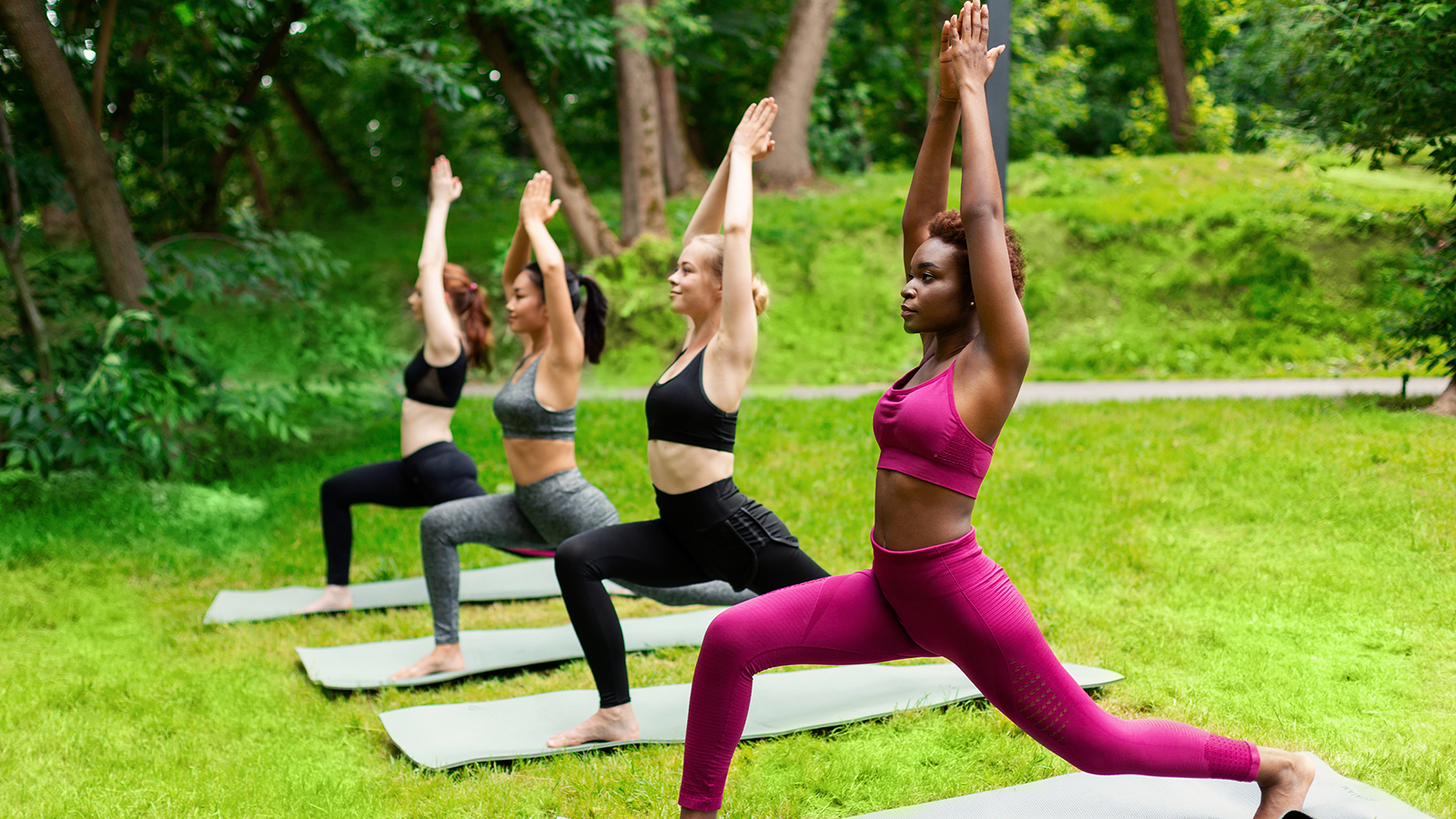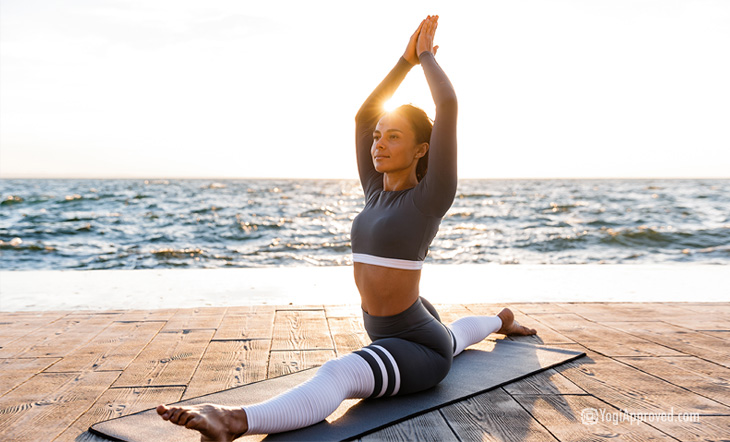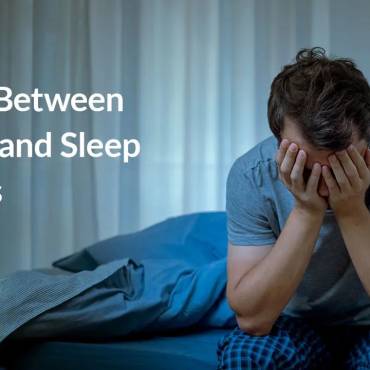
We all know that following an exercise schedule is vital for everyone for overall well-being. Outdoor exercise adds extra positivity and benefits compared to indoor exercise because when our body encounters the natural sunshine in the morning, it increases serotonin (a hormone that affects your mood). Additionally, outdoor exercise helps us ward off SAD (seasonal affective disorder), anxiety, and depression.
It is important to workout for mental health; being active outdoors can be a tonic for the body and soul. It is an accessible, affordable, and easily coordinated technique for promoting holistic health and well-being.
This blog provides a snapshot of current health and well-being literature highlighting outdoor activities’ mental, spiritual, and physical health benefits.
Workout for mental health
As the world grows even more complex, a fundamental truth becomes increasingly evident; overall health is enhanced through meaningful connections between people and places. Unfortunately, our urban lifestyle has distanced individuals from rural and natural environments. Just as houses become larger and gardens evolve into small concrete entertaining areas, the health benefits of being active outdoors are gaining credibility and an effective approach to improving health. Numerous research studies investigate the benefits of exercise on mental health.
According to the WHO (world health organization), health is the complete state of mental, physical, and social well-being and not merely the absence of disorder enabled the development of multi-layered approaches to and interpretations of what comprises health and well-being. Research shows that outdoor activities enable a person to engage physically, emotionally, intellectually, and spiritually with other people.
The best exercise for mental health
For mental health, four exercises work best:
- Cardiovascular
- Strength training
- Balance and
- Flexibility
Within these categories, there are even more options, such as brisk walking, cycling, basketball, weight training, dancing, gymnastics, bowling, boxing, swimming, golf, and so much more. According to research studies, all types of exercise benefit mental health, and sports have the best percentage for the least amount of bad mental days. The benefits of exercise on one’s health are immense, but did you know these benefits are even greater when you exercise outside rather than in a gym? Many healthcare experts believe outdoor activities enhance your mental awareness, making your physical workout fruitful. Moreover, outdoor exercise is free of cost, and you can save a lot compared to working out in expensive gyms. Saving money is another life accomplishment that removes stress and boosts your mood. With that in mind, let’s focus on a few most notable benefits of outdoor exercises.
1. Natural antidepressant
Outdoor exercise can help reduce seasonal affective disorder anxiety and depression because sunshine naturally increases the production of serotonin. Exercise may make your body produces endorphins, another feel-good hormone that improves mood and reduces pain.
2. Boost self-esteem
Your self-esteem increases when you spend time with friends doing different outdoor activities. The effect is particularly strong when you work out near water, green areas, and within the sound of nature. Walking around the trees and on the grass, among other moderate physical activities, eliminate stress and improve esteems. One can also play paintball to achieve a renewed sense of accomplishment and increase confidence.
3. Promote memory
Nature walks have been shown to have significant relevance in memory retention among individuals. Walking around the trees promotes your memory and boosts confidence.
4. Stress reduction effects
Hormone such as cortisol indicates that levels of stress in humans causes a significant reduction when you spend time outside in green areas, watching greenery, and taking part in low-intensity outdoor activities. It has also been proven that people who spend more time in the natural environment have a better heart rate than those who spend hours in front of screens or around city traffic.
5. Reduces anxiety
– As mentioned above, something about outside calming down an anxious mind. You will attest to this fact even if you are not fond of going out. You may have experienced mother nature’s calming nature, even though a house plant, walking on the grass, or pictures of nature. So if you continue having anxiety and the episodes don’t stop, you can plan regular outside workout sessions with your friend or your loved ones, which can provide assistance and help you find calmness.
6. Improves your sleep quality
Your sleep cycle depends on your internal clock’s accuracy. If the clock isn’t working correctly, you will have trouble regulating your sleep. The clock works well when the cells in your eyes get sufficient sunlight during the day, especially in the morning. This is why it is important to be out for as many minutes as possible in the morning. This requirement becomes more important as you get older.
7. Improves mental well-being
As mentioned above, your well-being greatly improves when exercising outside. The major reason for this is your mind’s awareness throughout the exercise session, particularly regarding the changing weather. Also, many people feel a lot of tension about working out, losing weight, and lowering blood pressure. Outdoor workout sessions are fun and feel more like play than a chore.
The bottom line
Outdoor exercise can foster mental health in all people by eliminating depression, anxiety, and negative energy and by improving cognitive function and confidence. It is so beneficial because it gives you a lot of variety, sunshine, and stress relief and helps you feel great.
Also Read: 5 Exercises to Boost Your Mental Health
admin
Latest posts by admin (see all)
- What is Triluma Cream? Uses, Benefits, and How It Works for Skin - December 26, 2024
- What Causes Dark Spots? Understanding the Science of Hyperpigmentation and How Skin Lightening Products Help - December 26, 2024
- Tretinoin Gel vs. Cream: Which Formulation is Right for Your Skin? - December 20, 2024



